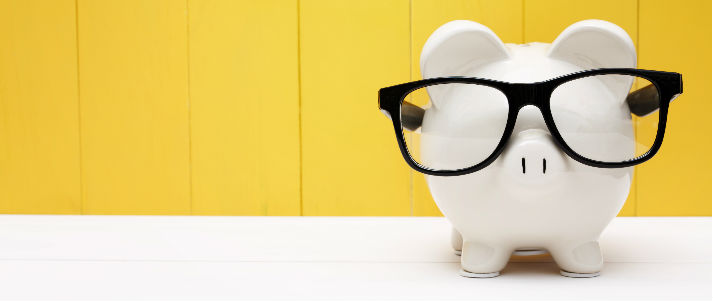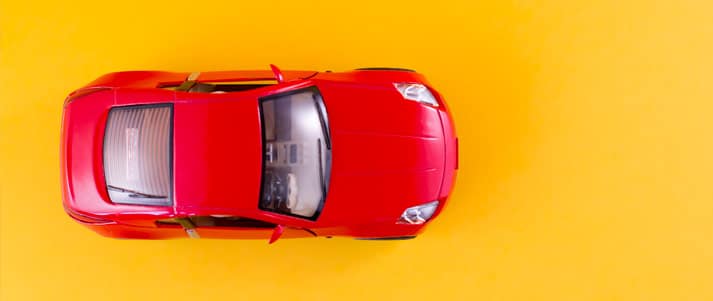9 essential tips for buying a used car
You could save a lot of money by buying a used car instead of a new one. Our guide will show you what to look for, what questions to ask and how to get the best deals.

Credit: ViDI Studio, Roman Samborskyi – Shutterstock
Owning a car is a dream of many. But this extra piece of independence and freedom can come at a costly price. Buying a car isn't cheap – so why not look for a used car instead of a brand-new one?
Even if you can afford a brand-new car, it's still worth looking into getting a cheaper used car. You may be able to find a great car for a fraction of the price.
Below, we'll go over the essential steps to follow when buying a used car, along with questions to ask the seller and things to look out for.
What's in this guide?
Reasons to buy a used car
Buying a second-hand car can work out much better than buying a new one. The biggest reason to choose a used car is money.
Cars are expensive. If you're on a student budget, you may not want to spend tens of thousands of pounds on a new set of wheels (yes, they really are that expensive!).
New cars also depreciate in value very quickly. While it obviously depends on how much you use it, a new car can go down in value by as much as 40% by the end of the first year according to the AA.
Cars usually stop depreciating once they've reached the 8–10-year mark. A car that's a few years old will sell for a fraction of the price of what it would cost new. Even though it'll have some miles on it, and maybe some minor aesthetic imperfections, the price difference makes it more than worth it.
Especially as a new driver, when your insurance will be expensive enough as it is, a cheaper vehicle makes for the perfect first car.
On top of that, buying a used car is also better for the environment. As is the case with most things, buying second-hand instead of new is a much more sustainable way to shop. This way, no energy needs to be wasted to manufacture a new car.
How to buy a used car
Here are nine steps to buying a second-hand car:
-
Set a budget for a used car

Credit: TierneyMJ – Shutterstock
Before you start researching what type of car you want to drive, it's important to set a budget. This budget shouldn't just include the price of the car itself, but also everything that comes with owning and driving a car.
Think about how much money you have available and how much you're willing to spend on it.
Also make sure you consider insurance, road tax and maintenance (including the annual MOT). By planning for these extra set costs, you'll avoid the risk of accidentally spending your entire budget on the car itself.
-
Research the type of car you want
Now you've set yourself a budget, it's time to narrow the search down a bit.
Take some time to consider what type of car you're after, and what models and brands fit these requirements. When researching, think about the following points:
- Manual or automatic – Consider your driving preferences and needs. Manual cars offer more control and are often cheaper (especially when looking at cars that are 10+ years old), while automatic cars are a bit easier to drive, especially in heavy traffic.
- Engine size – The size of the engine impacts a car's fuel efficiency and performance. Large engines give you extra power but consume more fuel. Smaller engines are more fuel-efficient and emit fewer CO2 emissions – which brings us to our next point.
- CO2 emissions – The environmental impact of your car also impacts the road tax associated with it. Lower-emission cars can save you money on tax and let you access low-emission zones.
- Efficiency (MPG) – The Miles Per Gallon (MPG) shows how many miles a car can drive per gallon of fuel on average. Your driving style, weather conditions and traffic also influence the actual MPG, but the average MPG is still a good indication of whether it's an efficient car or not.
- Petrol or diesel – Generally speaking, petrol cars are better for shorter journeys, while diesel cars are better for longer trips. Diesel cars often have a better MPG, but petrol is cheaper at the pumps. Have a think about what you'll mostly use your car for and decide on whether a petrol or diesel car will be the best fit.
- Reliability – It's a good idea to research the car's make and model for its dependability. Check whether it has any reputation for failure and read reviews from other owners.
- Insurance group – Car insurance is going to cost a lot of money if you're a new driver. However, the type of car you drive can increase that number even further. Before buying a car, check what insurance group it falls into – the lower the group number, the lower the insurance.
- Car size – Think about where you're going to drive and park the car. If you live in the city and are planning to use it primarily for city driving, a smaller car is probably a better shout.
-
Find a reliable used car seller
There are various places where you can buy a second-hand car. But since it's still likely to be an expensive purchase, make sure you're only using reliable sellers. The most common ways to buy a used car are through a dealership, a private seller or an auction.
Buying a used car through a dealership has its pros as they're the most reliable and have a range of pre-owned vehicles to sell. They also often give out warranties on sold cars, in case anything happens after you buy it. However, the cars tend to be a bit more expensive for that reason.
You can also buy a car through a private seller. While cars tend to be cheaper this way, you do have to be cautious to make sure the car's history is transparent.
Lastly, it's possible to go through an auction. We wouldn't necessarily recommend this when you're buying your first car as there is a bit of a learning curve when it comes to auctions. While you're able to get a great deal on some cars this way, there are lots of things to watch out for.
-
Check the car's history

Credit: Artem Postoev – Shutterstock
When you've found a seller and a car that seems to match your wishes and needs, it's time to research it. You can start by checking the MOT history for free on the government website. This shows you whether the car has ever failed an MOT, along with any advisories that were given when it passed.
On the MOT history, you can also check for any mileage discrepancies. You can see how many miles the car had clocked at every MOT, so check that they line up. This will help you spot if someone has deliberately wound back the mileage to make the car seem better than it is.
If you want a more detailed report, you can purchase an HPI check, which stands for Hire Purchase Information. These usually cost around £20. It highlights any critical issues, like whether the car has ever been involved in an accident, if it's been stolen, whether someone still owes money on the car and more.
-
Inspect the car
Don't be afraid to look for signs of wear and tear, rust, or any irregularities. After all, you're planning to spend a lot of money on this car. You want to make sure it's up to scratch. Use the list below to make sure you check all the important things.
What to look for when buying a used car
- Mileage – While the number of miles doesn't say everything about the condition of a car, it does give you a good idea of the wear and tear. On average, a car should have around 10,000 miles per year. So if you're looking at a six-year-old car, it ideally should have 60,000 or fewer miles on it.
- Overall condition – Inspect the car for any signs of rust, along with any dents or scratches. You can't expect a used car to look brand new, but if the exterior looks good, it's a sign that the car has been taken care of.
- Fluid levels – The car's fluid levels give a good indication of whether the car has been maintained properly. Of course, these are easy fixes, but it's worth checking before your price negotiation.
- Engine – Look for visible damage or leaks on the engine. Also, when turning on the car, listen for any odd sounds.
- Electronics – Inside the car, check if the radio is working. It's also worth trying any other in-car gadgets, along with all the lights. Also, turn the windscreen wipers on to make sure they work properly.
- Tyres – Check the tyres for wear and tear, and see if they have sufficient tread depth. Tyres are easily replaceable, but this will cost extra – so it's worth factoring into your decision and negotiation.
- Interior – When sitting inside the car, check for any signs of excessive wear, tears or stains on the carpet, dashboard and seats. Again, you can't expect this to be flawless with a used car, but it should be maintained well enough for you to enjoy driving in it.
-
Test drive the car
Taking the car for a test drive is a great way to get a good feel for the car. Before you do, however, make sure you are insured to do so.
If this is your first car, you may not have the right insurance to test drive it. It could be a good idea to bring someone with the right insurance so they can test drive it for you.
A test drive gives you a feel of what the car is like. You should check the brakes, handling and engine performance. Listen for any unusual noises and double-check if the electronic features work. It's also a chance to see what the comfort and visibility are like.
-
Negotiate the price

Credit: Master1305 – Shutterstock
When you've decided this is the right car for you, you don't have to pay up right away. With used cars, it's often possible to haggle to get a better deal.
Know what the car is roughly worth by checking similar models online. This can help you negotiate the price down, especially if the seller is asking for too much. If you've noticed any issues with the car that you can fix yourself (or pay to get fixed), this is the time to bring it up.
Keep your budget in mind and don't be afraid to walk away if the price and condition of the car don't match your needs.
If possible, it's worth considering paying on a credit card. This way, you'll be covered by Section 75. This lets you claim your money back if anything goes wrong on the seller's side. Make sure you can pay off the credit card as soon as possible to avoid any additional charges.
We know first-hand what a difference it can make to negotiate down the price of a used car:
 I bought my second-hand Toyota Yaris from a private seller I found on Facebook Marketplace. When I went to check out the car, I noticed that the bottom of the boot was wet – it turned out there was a small leak somewhere that was letting in rain water.
I bought my second-hand Toyota Yaris from a private seller I found on Facebook Marketplace. When I went to check out the car, I noticed that the bottom of the boot was wet – it turned out there was a small leak somewhere that was letting in rain water.Because of this, I was able to get a few hundred pounds off the original price. I then got the leak fixed for £50 in a garage near my old office. I've been driving it for over five years and everything works perfectly. No new leaks have appeared and nothing else has broken.
If you find anything wrong with the car that you know is fixable, bring it up – you could get yourself a much better deal.
-
Receive the used car's documents
It's very important to get the car's official documents when making the purchase. This includes the logbook (V5C registration certificate), the MOT certificate and a sales contract/proof of purchase. These have to be the original documents, not a photocopy.
Don't forget to ask if the buyer has any of the original manuals or spares. Any spare keys are also very useful – replacements can be expensive.
-
Sort out the car insurance
The car may be yours now, but you can't legally drive it until you're properly insured.
To find good deals on your car insurance, try using comparison sites such as MoneySuperMarket and Confused.com.
Check out our guide on how to find cheap car insurance for more info.
It's also a good idea to set calendar reminders for when your MOT is due and when you're expected to pay for road tax.
Questions to ask when buying a used car

Credit: Alexxndr – Shutterstock
Here are some examples of what to ask when buying a used car:
- How old is the car?
- What is the mileage on the car?
- Why are you selling the car?
- Are you the legal owner of the car? Can I see the paperwork? (Including the V5C certificate)
- How long have you owned it?
- How many previous owners has the car had?
- Does the car have a valid MOT certificate? When does it expire?
- Has the car ever been in an accident?
- Do you have the manuals and any spare keys?
- Have any modifications been made to the car?
- Has the car had any major repairs in the past?
- Is there any scheduled maintenance due soon?
- What warranty do you offer?
Feel free to ask the seller any additional questions to ensure everything is okay with the car. You have to make sure this is the right car for you, so don't be afraid to ask anything you want to know.
Your rights when buying a second-hand hand car
Just because the car you're buying is used, it doesn't mean you won't have any rights if something goes wrong.
Your customer rights after buying a used car differ depending on where you bought it. You'll have the most rights if you buy it through a dealer, which is also why that's often the most expensive route to take.
If you've bought the car from a dealer, your purchase will fall under the Consumer Rights Act. Under this act, the car needs to be fit for purpose, of satisfactory quality, and match the description. If this isn't the case, you may have some rights to compensation, repairs or your money back.
However, it does depend on what's wrong with it and what agreements have been made before you bought the car. If you were told about the problem beforehand, for example, you won't be entitled to anything. The Citizens Advice website has more information about this.
You don't have as much legal protection if you buy through a private seller. That's why you have to check the car as much as possible before buying it. However, the car must be roadworthy and the seller should have the legal rights to sell it.
If you buy a used car from an auction, be sure to read the auction house's terms and conditions beforehand. These will state any rights you'll have, but they will likely not be the same as the rights you'll get when buying through a reputable dealer.
Did you know you can rent out your car for money? Our guide explains all you need to know.








